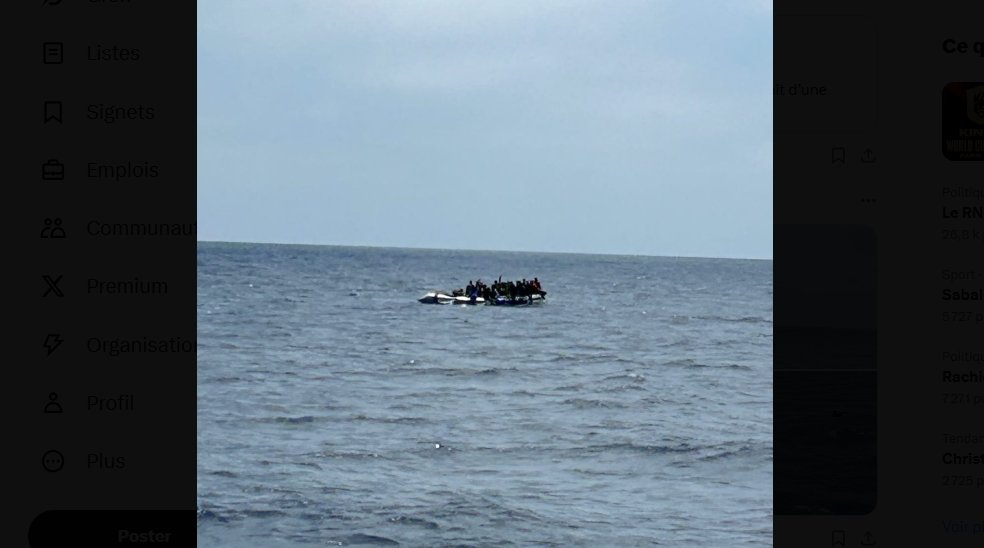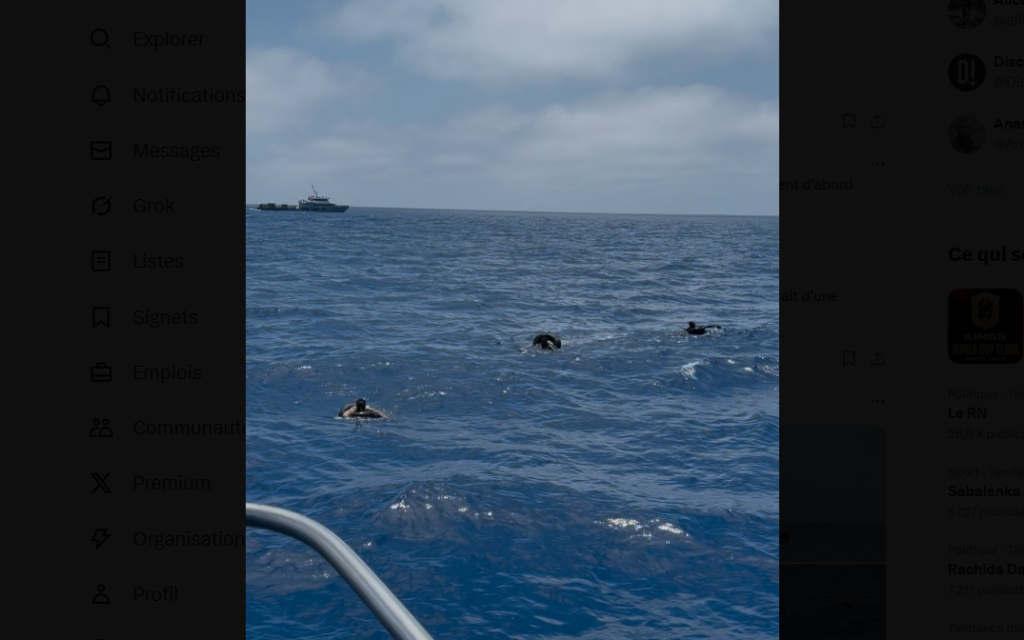The “Madleen” activist vessel on its way to Gaza responded on Thursday to a mayday call from Frontex about a migrant vessel in distress and rescued four migrants. Franco-Palestinian MEP Rima Hassan told InfoMigrants the migrants rescued had jumped in the water to avoid being sent back to Libya.
A boat organized by an international activist coalition on its way to Gaza to deliver humanitarian aid deviated off its path in the Mediterranean Sea on Thursday morning (June 5) to respond to a mayday call from the European border agency, Frontex, concerning a migrant vessel in distress.
"Frontex told us to approach the boat because we were the closest to it,” said Franco-Palestinian EU parliament member Rima Hassan, reached over the phone by InfoMigrants.
The "Madleen," a small sailing boat which had left Sicily on Sunday (June 1), then took a two-hour detour south of Greece and north of Libya and Egypt to reach the boat in distress.
Upon arriving at the zone of the migrant vessel in distress, the crew of the "Madleen" said they witnessed the Libyan coastguard arrive as well. "They arrived really fast, we were scared the [migrant] boat would flip," said Hassan.
Photos published online by the European MEP showed "nearly 40 people" on a small boat in the open sea.

Several of them jumped in the water, using inflatable tires as life-vests to remain afloat, while the Libyan coastguard shepherded most of the migrants onboard its much larger boat. The crew of the "Madleen" then issued a mayday call itself, but other vessels remained at distance.
Read Also
Libya: Women and children removed from migrant boat by armed men
Returned to Libya
Once migrants are forcibly returned to Libya, many of them end up imprisoned and subjected to abuse. The four migrants who were eventually rescued began desperately swimming toward the "Madleen" before being taken onboard.
"We gave them clothes and some water. They hardly ate anything and immediately went to sleep," said Hassan. A doctor onboard inspected them and didn’t note any serious injuries, except for a man suffering from light hypothermia.

The Sudanese men told the activists onboard they had left Libya on June 1 in the hope of reaching Europe. They had been navigating for three days when their boat’s motor died. They later drifted for two more days, before being found.
The humanitarian vessel initially planned on "negotiating with Greek authorities to take charge of the migrants, because our objective is still to reach Gaza," said Hassan. In the end, a team from Frontex came to take the four rescued individuals into its charge.
The central Mediterranean route is the deadliest migratory route in the world. Over 25,000 migrants, including women and children, have drowned since 2014 while crossing the Mediterranean Sea. Among them, nearly 3,500 children have died or disappeared while trying to cross the central Mediterranean between Africa and Italy, according to a Unicef report.
Over 450 people have died since the beginning of 2025 while taking the central Mediterranean route. The number is possibly much higher: numerous boats have disappeared at sea without leaving a trace. They are known as "phantom" boats.
The InfoMigrants editorial team wishes to emphasize that humanitarian vessels operate in a very limited part of the Mediterranean Sea. The presence of these NGOs is far from a guarantee of rescue for migrants attempting the crossing from the African coast. Many boats go unnoticed in the vastness of the sea. Many vessels also sink without being spotted. The central Mediterranean remains the deadliest maritime route in the world today.
